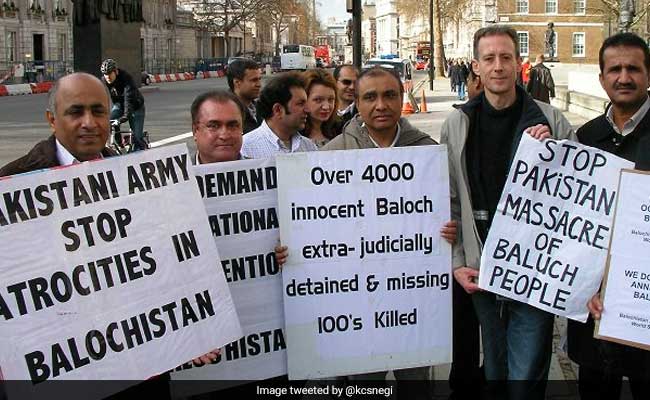“Pakistan inflicts on the Baloch nation and spreads drugs in Balochistan,” said Muhamad Iqbal Baloch, the BNM welfare secretary. See here.
In this regard, he quotes scholars who said that if you want to destroy a nation, do two things to it. The first is to make drugs as common as possible in this country so that every child is addicted to them.
As a result, he will lose sight of his true purpose in life and will neglect his responsibilities to the nation. He would also fail to consider his duties to the coming generation, he added. It is a well-known saying that if one wishes to destroy a nation, its generation should be denied education, leaving the next generation illiterate and crushed.
Previously, members of the Baloch National Movement’s (BNM) Awaran and associated zones organized a program on June 26, 2022, to commemorate the International Day Against Drug Abuse and Illicit Trafficking, as well as the International Day in Support of Torture Victims.
He went on to say that the Baloch have been fighting against Pakistan’s atrocities for drugs the past 74 years. The occupiers have been putting their power to the drugs test on Baloch people in various parts of Balochistan.
“Our mothers, sisters, and daughters are being tortured in torture cells by the Pakistani army,” revealing the Pakistani Army’s true face.
In his address, Hanif Baloch, a member of the BNM Central Committee, stated that we have been subjected to the atrocities of the Pakistani army since the day Pakistan occupied our land and that the “atrocities of Pakistan are increasing with each passing day.”
The drug, however, is a gift from Pakistan’s occupation, he continued. New drugs are produced around the world quickly, and drugs spread rapidly to Balochistan. Most drug traffickers are Pakistani army officers determined to decapitate the Baloch people.
The Baloch National Movement’s Information Secretary brought up the University of Balochistan drugs scandal too, in which university officials collaborated with the Frontier Corps (FC) to conduct surveillance with the help of hidden cameras and record the personal videos of students to blackmail them. This was a well-organized inhuman plan by the officials. Hundreds of female Baloch students were blackmailed with the help of these videos.
Under the cover of the Pakistan army, state-sponsored death squads have been committing atrocities in Balochistan.
Balochistan at a Glance
Balochistan is geographically and strategically vital to Pakistan as a state and economy. It is the largest province in Pakistan and is situated in the southwest of Afghanistan. Iran borders it on the west; Punjab and Sindh on the east; Pakhtunkhwa on the north; and the Arabian Sea on the south.
It has abundant natural gas reserves, accounting for more than 40% of total gas production in Pakistan; it also has some of the world’s largest copper, gold, and petroleum reserves.
The modern history of insurgency in Balochistan is as old as its forcible integration into Pakistan in 1948. The 1947 Indian Independence Act, which identified two nations, gave all formerly autonomous princely states the preference of joining India or Pakistan.
The Act stated that a princely state would remain autonomous if it did not make one of these decisions by August 15th, 1947. As a result, the princely state of Kalat, which is now part of the Baloch state, remained independent of both dominions. The Kalat state declared independence through a parliamentary procedure.
However, by late 1947, Pakistan had deployed an army and forced the Khan of Kalat to sign the instrument of accession.
India has always maintained a policy of not intervening in the internal affairs of any country, including Pakistan. Despite Pakistan’s constant raising of the Kashmir dispute over the years, India has remained silent on the Balochistan issue. However, the incumbent Indian Prime Minister, Narendra Modi, mentioned the plight of the Baloch people during his Independence Day speech in 2016. That brought the attention of people from around the world. This attracted the attention of people all over the world.
Balochistan remains in dire condition. The Baloch people are looking to the world community for external support.












